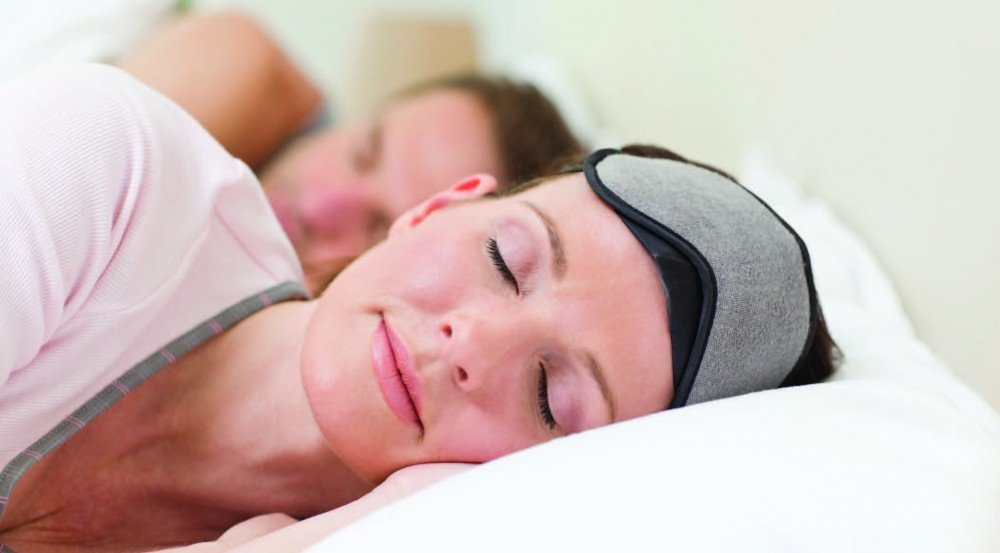Editor’s Note: This article first appeared in the September 2017 edition of TTAC’s Heroes Against Cancer member newsletter.
When you think of melatonin, the first thing that may come to mind is how it can help with sleep. It is true that melatonin supplementation is often used as a drug-free solution for those who suffer from insomnia and other sleep disturbances. The melatonin that the body produces naturally, however, has many uses other than sleep regulation. Having a healthy amount of this vital hormone in your system can also help you prevent disease – including breast cancer.
Your Body Needs Sleep to Produce Melatonin
Melatonin is often called the body’s “pacemaker.” It is a hormone that is secreted by the pineal gland, a tiny but very important gland tucked deep in a groove between the two halves of the brain. The pineal gland produces melatonin and is an important part of the endocrine system as a whole.
Together both the pineal gland and melatonin help to modulate the body’s internal clock, allowing the body to know what time of day it is and what time of year as well. Both the pineal gland and melatonin help to regulate the circadian rhythms and the all-important “sleep cycle.” Melatonin has an influence on almost every cell in the body and is seen in cell membranes, the mitochondria, and other areas of the cell as well.
Interestingly, some amount of melatonin is also produced in the gastro-intestinal tract. This makes sense, however, since melatonin plays a huge role in immune system regulation and the majority of immune system cells are located in the upper GI. Of the numerous things this hormone does in the body, it is known as an immune-stimulant, anti-inflammatory, and “buffer” for inflammatory reactions. Melatonin can help prevent complications caused by infection, vaccines, autoimmune responses, and immune-senescence (immune senescence is the deterioration of the immune system as one ages).
This last connection between melatonin and age rings up some controversy within the conventional research community. Some researchers question whether melatonin naturally declines after age 50 or so. Whatever the case for those in their elder years, the evidence is pretty clear that melatonin levels decline after age four and that melatonin is connected to stages of hormonal development (i.e. puberty).
It is also clear that sleep disturbances occur more often in elderly individuals than any other age group, and lack of sleep is one major way that melatonin becomes depleted in the body. The biggest concentrations of melatonin are produced at night and in total darkness; it will increase just before “normal” bedtime and slow down just before waking up.
Your body may not get the chance to make enough melatonin for sustained functioning and healing if you:
- Go to bad very late
- Use electronics right before bed
- Have situations of high stress late at night
- Don’t get enough total hours of sleep
- Wake up periodically through the night
- Do not get enough quality sleep (i.e. sleep in the theta or delta states)
- Have a sleep cycle that is off-balance because of work or other factors
- Have insomnia
Electro-pollution: The Biggest Threat to Melatonin Production
Another way melatonin becomes depleted in the body is through exposure to “electro-pollution,” also known as man-made, harmful “EMFs.” As the number of cell towers and high-powered electric lines increase and our society as a whole becomes increasingly dependent on the internet through Wi-Fi, electro-pollution truly is becoming one of the biggest health threats worldwide. In fact, the National Institutes of Health National Toxicology Program is currently in the middle of conducting a $25 million dollar research study into the possible carcinogenic effects of close-range cell phone exposure. Partial findings have shown a correlation between greater intensities of RF radiation (emitted by cell phones) and rare forms of brain and heart cancer. This can possibly lead to a direct risk relationship between cell phones and cancer which goes up with greater exposure.

Electronics are commonplace at work and home, but the electro-pollution they emit is a hazard to your health
Frequencies emitted from cell phones, electric lines, WiFi routers, and other electronic devices (like alarm clocks and hair dryers) will suppress the production of melatonin in the pineal gland. According to a study conducted at the University of California, Berkeley, 12 mG (milligause) or 60 Hz of EMF exposure can block melatonin from being produced in the body (60 Hz is what is normally emitted from a computer). Electro-pollution can also disrupt melatonin signaling, which is vital when it comes to cancer. Without proper cellular melatonin signaling, cancer cells will continue to grow.
What Exactly Is an EMF and Why Do They Have Such a Detrimental Effect on Health?
EMF stands for “electro-magnetic field.” EMFs themselves are neither bad nor good. They are all around us, even though we cannot see them. In fact, naturally occurring EMFs are a vital component of the earth’s connection with the cosmos. They help the planet, the weather, the oceans, and our bodies be on just the right “schedule” for life to flourish!
Humans, like all life, are electrical beings. We need to be in “resonance” with the earth for optimal health. The earth, and our bodies, resonate at a frequency that has been around 7.8 Hz for thousands of years. Man-made devices emit a frequency on the EMF scale as well. The problem with these frequencies, however, is that their place on the frequency scale, their intensity, and their shape are not in alignment with life. They are too high or sporadic (or both) to support life. Constant exposure to man-made EMFs cause us to be off-balance – and the consequences for health can be dire.
In relation to melatonin production in particular, high exposure to EMFs – and especially the “blue light” produced by cell phone and computer screens – can create a vicious cycle. As mentioned above, EMFs shut off melatonin production. In turn, this affects sleep. The result of less quality sleep is less melatonin production. Less production means less quality sleep, and so on. Before you know it, you are caught up in a stressful cycle that can only lead to disease.
The Connection Between Melatonin and Cancer
Low melatonin levels have been connected to a variety of chronic health conditions. For example, a study of close to 750 women conducted in part by Harvard School of Public Health found that the lower the melatonin levels, the higher the possibility of developing Type 2 diabetes.
In study after study, melatonin in the body has also shown to have an effect on cancer. It is actually classified as a cytotoxic hormone, a substance that can have a toxic effect on pathogenic (disease-producing) cells. Melatonin is also known as a tumor suppressor for many kinds of cancer, including breast cancer.
A 2015 study published in the journal Endocrine-Related Cancer took a look at people who worked at night and were exposed to artificial lights. The researchers wanted to know how this situation affected melatonin production and breast cancer. Their data indicated high numbers of breast cancer in this population. This is partly because melatonin helps to regulate estrogen metabolizing enzymes as well as “clock-related genes.”
Other ways that melatonin can help with breast cancer prevention in particular are:
1 | Melatonin can put breast cancer cells to sleep. Renowned cancer researcher Dr. David E. Blask found that melatonin has the ability to suppress breast cancer growth by actually putting cancer cells to “sleep.” He discovered that night time melatonin levels in the blood can slow breast cancer growth by 70%!
“Nighttime Melatonin is a relevant anticancer signal to human Breast Cancers. 90% of human Breast Cancers have specific receptors for this signal,” says Dr. Blask.

Working nights and excessive exposure to artificial lights lowers melatonin production, which is linked with higher breast cancer risk
2 | Melatonin helps to regulate estrogen. It does this by down-regulating estrogen-responsive genes. It eliminates places for harmful “xenoestrogens” to land and also protects from estrogen overdose by inhibiting estrogen production in breast adipose fibroblasts (BAFs). BAFs form the dense mass that exists around malignant breast epithelial cells and are the main source of estrogen in breast tumors among postmenopausal women, according to a 2012 Australian study.
3 | Melatonin can cause cancer cells to die. This process is called apoptosis, and melatonin is a catalyst for this by inhibiting certain kinds of proteins and signaling pathways, according to a 2012 Chinese study and others.
4 | Melatonin boosts the immune system. As mentioned before, this factor alone is huge in terms of preventing (and even helping to heal) breast cancer and other diseases. Melatonin is a natural antioxidant and can enhance the production of T-helper cells in the body. According to a 2011 Indian study, melatonin can help those suffering from breast cancer, hepatocellular carcinoma, or melanoma. Because melatonin reduces oxidative stress, supplementing with melatonin under the guidance of your natural health practitioner can be a viable protocol for countering the effects of chemotherapy and radiation.
5 Ways to Increase Your Melatonin Levels
Are you convinced yet that melatonin is one of the most important hormonal substances in your body? Well it is, and here are five ways you can up your levels naturally:
1 | Sleep. Get plenty of it, and make sure it is quality sleep as well! The Delta sleep state has been most associated with the deepest relaxation. It is also during this state when healing occurs the most. Make sure that the room you sleep in is as dark as possible in order to get the deepest sleep possible. Even a tiny nightlight or the light from an alarm clock may throw melatonin production off.
2 | Limit Wi-Fi exposure. Now that you know the damage Wi-Fi can cause to your body and especially to melatonin production, take measures to limit Wi-Fi exposure and radiation from cell phones. Turn off your routers at night and never put your cell phone close to your ear (instead, use the speaker function as much as possible). Also, make sure that you are not sleeping next to electrical outlets or outside electrical transformers. And if your home or apartment complex has SMART meters, take measures to remove them and replace them with manually-readable units. Your power company may balk at this and unfortunately may charge you a monthly fee, but it will be worth it for your health. Remember that you have the right to refuse SMART meter installation.

EMFs turn off melatonin production. Take the necessary steps to minimize exposure to EMFs in your sleeping area
3 | Unplug from your computer screen at least an hour before going to bed. Blue wavelength light is emitted from televisions, electronic devices, and computer screens. Blue wavelengths can be beneficial during the day because they can boost attention, mood, and reaction times. But at night, they can be a deterrent to getting a good night’s sleep. They can drastically affect sleep patterns and melatonin production and should be avoided after sundown. If you have to work on your computer at night, apply a filter that can dim the light on your screen. Better yet, turn off your computer and television at least an hour before bed and use a soft light (red or orange is preferred) to do some reading. Taking a hot bath or shower or listening to some soft music instead are other activities you can do to ensure a good night’s sleep.
4 | Lower your stress. When functioning properly, cortisol levels generally spike and run higher during the day. At night, cortisol is meant to go practically dormant as melatonin takes over. Low levels of melatonin in general, however, can spell trouble since this can lead to a correlated higher level of glucocorticoid signaling (i.e. cellular signaling for cortisol) at night.

Do your best to avoid stressful situations and conversations just before bed as this can spike cortisol levels
Especially avoid stressful situations late at night as these situations will cause cortisol levels to spike at inappropriate times as well. Studies conducted on shift workers demonstrate this point.
Is there a challenging conversation you need to have with a family member or co-worker? Save it for morning, when your body will be attuned and ready to take on the stress of the day, not winding down from it. Also, put into place an everyday protocol for stress management.
These days, this is something everybody needs! Meditate, take a short walk, or do some breathing exercises. Twenty minutes to a half hour of this kind of practice every day is ideal. But even 5 to 10 minutes a day will gradually train your brain to slow down and the allow the relaxation response and its healing hormones (including melatonin) to kick in.
5 | Supplementation. For some individuals, supplementation may be the short-term answer for very low melatonin levels or for turning down chronic stress responses that may inhibit healing. I recommend that if you are considering melatonin supplementation, get your melatonin levels checked first and consult with your natural health care professional about the results.
Can Too Much Melatonin Be Harmful to Your Health?
The short answer is no. According to Dr. Blask:
In human studies, melatonin has basically no toxicity. Now it takes very little melatonin to stimulate nighttime sleepiness – on the order of three-tenths of a milligram. But you can’t overdose with melatonin. People have taken gram quantities. Its nastiest side effect is sleepiness.
So, although you can’t overdose on melatonin, you don’t need a lot of a quality supplement to do the job. Get your levels checked. Then, if you come out low, take measures to up your nighttime melatonin production naturally or with supplementation.
According to a recent story on National Public Radio, approximately 60 million Americans have trouble sleeping, especially women and those over 65 years of age. That is a lot of possibly melatonin-deficient people in this country! Don’t take melatonin deficiency lightly. Having adequate amounts of this vital hormonal substance in your system is one of the best things you can do to prevent disease, including breast cancer.
Would you like to know ALL the ways to prevent, treat, and beat cancer? If so, you’ll love what you discover here.
Article Summary
A healthy amount of melatonin can help prevent disease including breast cancer.
Your body needs sleep to produce melatonin.
Electro-pollution truly is becoming one of the biggest health threats worldwide.
Melatonin in the body has also shown to have an effect on cancer.
Some ways to increase melatonin include:
- Increase sleep
- Limit Wi-Fi exposure
- Turn off devices before bed
- Lower stress
- Supplement



















I’ve heard that eating a small amount ( e.g. 1 ounce ) of dark chocolate about 30 minutes before bedtime will help to stimulate Melatonin production during the night. So I tried it, and its seems
to work, because I sleep like a rock for at least 7 hours ( before my cats wake me for breakfast )
and I wake up ‘bright eyed and bushy tailed’ !! . . . . and I’m 84 this year ! (o:}
Your comments please !
Thank you for sharing this great feedback, Ron!
Nothing better than a good night’s sleep for sure 🙂
His question re: dark choc was not answered
HE DIDNT ASK A QUESTION. HE GAVE A STATEMENT
Wouldn’t there be a concern that the caffeine in dark chocolate would have the opposite effect?
He did not ask a question. He said, “he heard” that dark chocolate would help so he tried it and it did help him. So his personal experience answered what he heard. Everyone is different so try it and find out for your personal self.
I’ve been taking Melatonin supplements for about thirty years. I started with one milligram for a few years and have been up as high as 10 miligrams for short periods, a few months at a time perhaps. Three to five milligrams seems to be the sweet spot for me. I buy mine at Costco.
The only chronic health problem I have is A Fib, caused by being an early adaptor to technology. Carried my cell phone in my shirt pocket for twenty years and always had the most powerful Wi-Fi router and cordless phones available for years, until I ended up in the hospital with A Fib and congestive heart failure in my early fifties. Now, at 68, after learning from Dr. Klinghardt’s videos among others I have moved to a rural area and I’m healthier than ever.
Will taking melatonin affect the Letrozole I take to suppress hormones. My breast cancer was caused by hormones.
I have been healthy growing up on a farm, gardening, drinking well water, accept when in college, living in rural areas but later lived in what I called subdivision city. Then looking at raising kids, homeschooling, sleeping less and working more. I neglected myself and got colitis because I got away from garden raised foods to store bought. The FDA was not doing the their job. So the healing journey started melatonin was the start. The return to getting enough rest going to bed early. And rising early to get a jump on things for myself. 1 gram melatonin per night. 5 grams every so often when more was needed.
Thank you for sharing your thoughts and taking control of your health, Suzanna!
I use melatonin for years, have been Abe to cut my amitritptilyne from 50 mg to 10, and some nights only melatonin and magnessium . WONDERFUL support.
Vi Demers
I was diagnosed with cancer two and a half years ago, had surgery and chemo and have been recovering from related side effects ever since. My body is healing because I focused on nutrition – fresh fruit and vegetables and taking supplements to restore my health. I am so grateful that my Dad in New Zealand spends an enormous amount of time researching how to help me. He read about Niacinamide and tried it himself first (he had aching knees). My supplement regime now includes Niacinamide and it certainly helps reduce my pain – so much so that I no longer need prescribed pain killers. I hope your information reaches as many sufferers as possible so that they may also find relief.
Hi Sandra,
We are so glad that you found some relief. We are wishing you all the best on your healing journey! Please don’t forget to share our message with others so that we can reach people around the world.
I’ve been taking melatonin for at least 30 years. Small doses of 1mg worked in the beginning but as I became even more sensitive to electromagnetic waves and stressors of all kinds, I needed to increase the dosage (in addition to following all the advice Dr. Veronique gives in her article). I feel that melatonin has been beneficial to both my physical and mental health. Unless one finds a solution, insomnia can ruin life quality. I now take much higher doses and vary them according to need. The strategy that works for me is to start with 6 – 8 mg, then take another 3 mg dose when I awaken in the middle of the night (but 4 hours or so to sleep must remain). I’ve also found that melatonin brands vary greatly according to effectiveness. There’s a lot on the market, so it’s important to research and try out brands. Occasionally switching between trusted brands works well for me also.
Re: “Nothing better than a good night’s sleep for sure”.
You didn’t mention anything about the dark chocolate.
So what can one do if they work the third shift?
Probably black out shades and a sleep mask. Shift work can be tough for the system to adapt to – you can probably get some good literature on the subject on line or through Amazon. You may need to find a way to get at least a half hour of sun exposure a day as well. Sunlight effect emitting light bulbs help mood for those with low sun exposure.
I had read that Melatonin can cause allergies/or perhaps exacerbate them, so I stopped taking it. Would love some feedback about this.
Living in the country is not always healthy. The Mayo Clinic calls the Corn Belt the Cancer Belt as many of the farmers and family members get cancer. Breast Cancer may be estrogen related. It makes no sense to wait until you get a diagnosis to test your hormone levels. Check your levels before you get bad news so you can be proactive. Work with a functional practitioner, do thermography for early detection. That can see fibrocystic syndrome.
In my opinion there is NO more well studied person on the globe regarding melatonin than Russel J. Reiter, PhD. Here is what he has to say regarding cancer and I encourage you to watch his other youtube videos. Melatonin is a MASTER Antioxidant! https://www.youtube.com/watch?v=CzPGbXJ-G7s
My dentist told me to start taking 60mg of melatonin and increase to 180mg. I did buy the 60 mg capsules, but haven’t started taking it yet because I couldn’t find any info on higher doses of melatonin……. do you have any knowledge of the safety at the height levels?
My husband is a cancer survivor. We have found that Humate (a humic mineral) promotes the melatonin. He is a hypertensive person and has had a hard time shutting down for a good nights’ rest. But the humate helps him tremendously. Yes, the electronic stuff is also shut down and are in a separate room for the night. He is 70 and has never felt better for years than now, including me!!
Sunshine creates Serotonin which produces Melatonin. So get out in the sun.
Melatonin is an important hormone in our body. However, an increased melatonin level is dangerous and may cause increased breast cancer risk. A well known fact, that in African-American women, the risk for poorly differentiated breast cancer is high and the prognosis of the disease is poor. They dark skin in a lower light exposure is responsible for increased melatonin synthesis and the associated complex hormonal disturbance leading to cancer. See in: Light deficiency confers breast cancer risk by hormonal disorders. Recent Patents in Anticancer Drug Discovery, 2012
There’s no response to the Letrozole question. Does imelatomin interfere with it?
I had many years of sleepless nights, sometime going for 48 hours without any sleep. That then tires me and I will sleep the following night for a few hours. With less sleep and my body not being able to heal properly, I developed endometrial cancer from estrogen dominance.
I discovered about pico -ionic Magnesium supplementation and magnesium rich foods (including dark chocolates) which then helped with increasing the number of sleep hours I get each night. I have been on pico-ionic Magnesium from RnAReset.com since January and I now sleep between 6-9 hours each night.